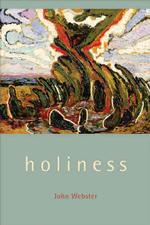"Where Can I Flee from Your Presence"

Life is crazy these days as I move nearer the completion of my doctoral dissertation, so I haven’t had much time to blog of late and I won’t have much time in the weeks and months to come. But I read a paragraph today that really struck me. I’ve spent 38 pages of one chapter of my dissertation trying to say what British theologian John Webster has said brilliantly in the following few sentences. When I read these words I literally had to put the book down and repent of the way I had been approaching the task that God has set before me. Perhaps they speak more to my peculiar situation, but I thought I’d share them anyway:
“One of the grand myths of modernity has been that the operations of reason are a sphere from which God’s presence can be banished, where the mind is, as it were, safe from divine intrusion. To that myth, Christian theology is a standing rebuke. As holy reason at work, Christian theology can never escape from the sober realization that we talk in the terrifying presence of the God from whom we cannot flee (Ps. 139.7). In Christian theology, the matter of our discourse is not someone absent, someone whom we have managed to exclude from our own intellectual self-presence and about whom we can talk away safely and undisturbed. We speak in God’s presence. When we begin to talk theologically about the holiness of God, we soon enough discover that the tables have been reversed; it is no longer we who summon God before our minds to make him a matter for clever discourse, but the opposite: the Holy God shows himself and summons us before him to give an account of our thinking. That summons – and not any constellation of cultural, intellectual or political conditions – is the determinative context for holy reason. There are other contexts, of course, other determinations and constraints in the intellectual work of theology…. But those determinations and constraints are all subordinate to, and relativized by, the governing claim of the holy God, a claim which is of all things most fearful but also of all things most of promise” (John Webster, Holiness, 15).
May we all be reminded today of the reality that all we do we do in the presence of a Holy Observer and may we seek to honor him in all that we undertake.
Yes - what Bill said. Hang in there man. Not the ass comment. Huuuh. Hey bill, have you seen Beauty and the Geek on WB? There's a guy on there who laughs like B&B. Pretty hilarious.
Sorry for the distraction Barry. Good luck with the dissertation. I liked the quote as well.
Nate
Posted by Nate |
3:31 PM
Nate |
3:31 PM
Hey Barry -
I like the way the quote opens, revealing a faction of Modernity that attempted to function without God's presence. We've briefly mentioned seminaries, and this kinda reveals some of my previous conceptions about it - that Christian theology seems to sometimes avoid a "divine intrusion" into all the reasonable explanations, theories, and rules even.
So, I like the description here of Christian theology as "holy reason at work." That demands some quiet respect, some awe and reverence, and an acknowledgement of mystery always here with us.
To again quote the quote that you quoted:
it is "of all things most fearful but also of all things most of promise" to realize and "work" under the claim of a holy God.
I want my work to be there. I bet your current work is just that.
thanks for sharing,
-s.o
Posted by s.o |
10:31 PM
s.o |
10:31 PM